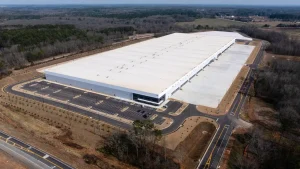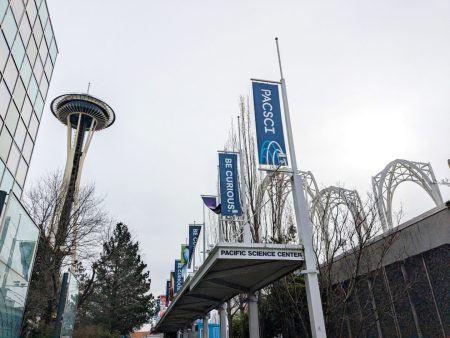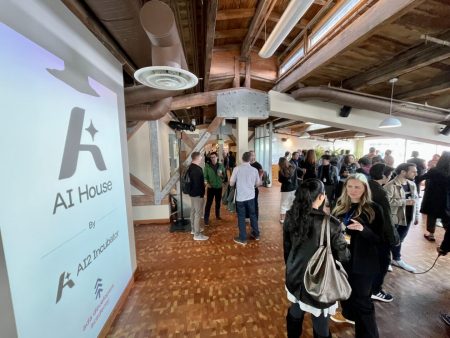Salesforce Cuts Jobs in Washington Amid AI Integration and Industry Evolution
In a move reflective of the rapidly changing technology landscape, Salesforce has announced layoffs affecting 93 employees in Washington state. The job cuts, reported through an official notification to the state’s Employment Security Department on Wednesday, impact the company’s workforce across its Seattle and Bellevue offices. While specific roles haven’t been publicly identified, the decision appears to align with broader strategic shifts within the company as it navigates the integration of artificial intelligence into its operations. “We continuously assess our structure and rebalance as needed to best serve our customers and fuel growth areas,” explained a company spokesperson, framing the decision as part of Salesforce’s ongoing business evolution rather than a downsizing crisis. This development affects only a small percentage of Salesforce’s regional presence, as the company maintains over 3,000 employees in the Seattle area according to LinkedIn data.
This latest round of layoffs follows significant organizational changes at Salesforce, particularly concerning its Seattle-area operations. The company, known for its cloud-based customer relationship management tools, made a major investment in the region through its $15.7 billion acquisition of Seattle-based Tableau in 2019. However, since then, Salesforce has methodically reduced Tableau’s footprint, including closing office space in Seattle’s Fremont neighborhood. More broadly, the company implemented a substantial workforce reduction in January 2023, cutting approximately 10% of its regional employees. The current layoffs may represent a continuation of this strategic realignment rather than an isolated incident, suggesting an ongoing reassessment of Salesforce’s operational needs and organizational structure in the competitive tech landscape of the Pacific Northwest.
The workforce reduction coincides with revealing comments from Salesforce CEO Marc Benioff, who recently disclosed on The Logan Bartlett Show podcast that the company had eliminated 4,000 customer support positions from a previous team of 9,000 – a striking 44% reduction achieved through AI-enabled efficiencies. While it remains unclear whether the Washington state layoffs directly connect to these customer support reductions, the timing suggests they likely form part of the company’s broader AI integration strategy. Benioff has been increasingly vocal about Salesforce’s AI transformation, announcing earlier this summer that artificial intelligence tools now handle up to half of the company’s work processes. This dramatic shift demonstrates how quickly AI is reshaping employment within even established tech companies, creating productivity gains but also significant workforce disruptions.
The human impact of these changes cannot be overlooked. For the 93 individuals affected in Washington state, the layoffs represent not just corporate restructuring but personal career disruptions and financial uncertainty. These employees join thousands of others in the Seattle region’s tech sector who have faced similar circumstances in recent months, with companies like Oracle, Rec Room, F5, Microsoft, and T-Mobile all implementing staff reductions this summer. The concentration of tech layoffs in this innovation hub highlights a paradoxical trend: even as the industry continues to pioneer breakthrough technologies like generative AI, many workers who helped build these companies find themselves displaced by the very innovations they helped create. The situation raises important questions about responsibility in managing technological transitions and supporting affected employees through career transitions.
Salesforce’s strategic positioning reveals additional complexity beyond the workforce reductions. Benioff has recently increased competitive rhetoric against Microsoft, Salesforce’s Seattle-area rival, criticizing their artificial intelligence offerings while promoting Salesforce’s own Agentforce platform. This competitive tension underscores how AI has become a critical battleground for tech companies, with substantial implications for market positioning and future growth. Despite these challenges, Salesforce reported 10% revenue growth reaching $10.2 billion in its fiscal second quarter earnings announced Wednesday – demonstrating that the company continues to expand even while restructuring. However, weak revenue guidance caused a 5% drop in after-hours trading, indicating that investors remain cautious about the company’s outlook amid these transformative changes.
The Salesforce situation exemplifies the complex reality facing today’s technology sector: companies must simultaneously navigate AI integration, competitive pressures, market expectations, and workforce management. The rapid advancement of artificial intelligence is creating unprecedented opportunities for business transformation, but also forcing difficult decisions about organizational structure and human resources. For employees, communities, and companies alike, this period of technological transition brings both promise and disruption. As Salesforce continues “rebalancing” its operations, the experiences of these 93 Washington state employees represent a microcosm of the broader shifts reshaping work in the digital age. Their story reminds us that behind every corporate announcement and technological breakthrough are real people navigating careers in an increasingly unpredictable landscape – one where even cutting-edge tech workers must continuously adapt to remain relevant in a world increasingly augmented by artificial intelligence.















